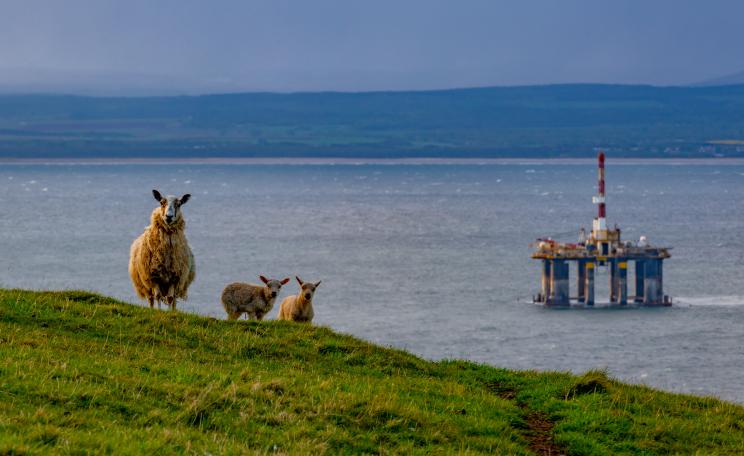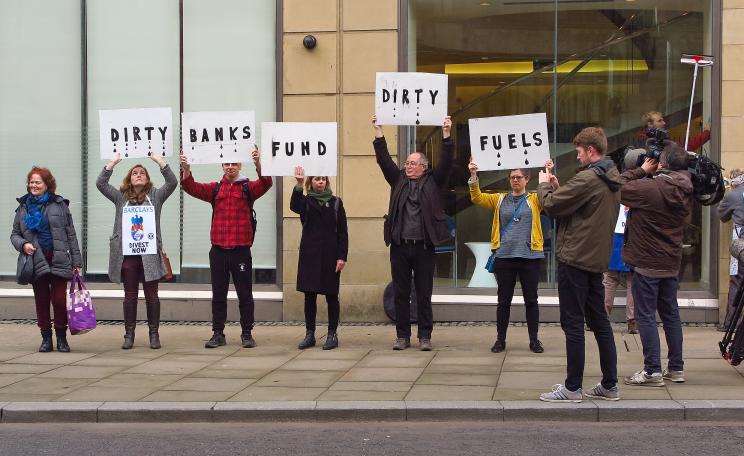Protections like the habitats regulations must be strengthened, not removed, if we are to have any hope of delivering on the UK government’s own promises for nature’s restoration.
One in every ten species across England is on the brink of extinction. The UK is amongst the most nature-depleted countries in the world. A coherent plan for nature’s recovery on land and at sea is urgently needed.
Jacob Rees-Mogg, business secretary in the current UK administration, plans to reform and revoke hundreds of laws that have their origins in policies from the European Union. Yet deregulation means removing rules and protections, often characterised as ‘cutting red tape'.
This means polluters could further get away with poisoning our rivers and countryside, whilst ripping up rules that protect our most valuable wildlife sites. This will be done through the passing of the Retained EU Law Bill – which was introduced into the House of Commons in 2022.
Vital
Many of the laws now under threat provide vital environmental protections for our air, rivers, wildlife, and food standards. Some of them helped clean up our waters in the 1970s - allowing the UK to shake off its reputation as being the ‘dirty man of Europe’.
Changing these laws entails extensive procedural change with little benefit for nature and could lead to more litigation and greater costs for both developers and conservationists.
If retained EU legislation is replaced with weaker alternatives, our natural environment will be left unprotected from those who prioritise profit over protecting the planet.
Strength
The Department for Environment, Food & Rural Affairs has more retained EU law than any other government department, with 570 retained laws on environmental issues.
Key laws, including the Conservation of Habitats and Species Regulations, are the cornerstone protection for our most treasured sites. Some of these laws include the Water Framework Directives which set strict standards for pollution of rivers.
The Air Quality Standards Regulations impose limits for toxic air pollution, whilst the Marine Strategy Regulations ensure the government protects our seas.
The removal of the habitats regulations is of particular concern. They defend 18.8 million hectares of our most precious wildlife across the UK from inappropriate and damaging development – from the New Forest and the Norfolk Broads. And from hazel dormice to harbour porpoises.
Without them nature will struggle to secure us against the impacts of climate change, such as flooding and drought. The natural world also provides people with health and wellbeing benefits.
Protections like the habitats regulations must be strengthened, not removed, if we are to have any hope of delivering on the UK government’s own promises for nature’s restoration.
Protections like the habitats regulations must be strengthened, not removed, if we are to have any hope of delivering on the UK government’s own promises for nature’s restoration.
Support
The UK Food Security Report 2021 is clear: “The biggest medium to long term risk to the UK’s domestic production comes from climate change and other environmental pressures like soil degradation, water quality and biodiversity”.
The estimated cost to UK farmers for soil degradation alone is £1.2 billion each year. To secure a sustainable future for British food and farming, we need more nature.
Delays to schemes to reward farmers to restore nature would be bad value for money, providing billions of taxpayer funding to the wealthiest farms in England, would hold back the recovery of nature, and hinder the UK’s progress to net zero.
The UK government must urgently announce details of its long-awaited proposals for a local nature recovery scheme for farmers, as well as reverse the cut in funding for large-scale landscape and river restoration.
Ambition
A legally binding target would ensure that nature is in a better state by 2042. The government’s current nature target would mean there is less nature in England in 20 years' time.
With wildlife populations the lowest they have ever been, and once common species on the brink of extinction, this is simply unacceptable.
We need a target that will guarantee that nature is in a better state for the following generations. This will require that politicians are held accountable for promises to protect nature.
The government should raise its ambition and set a target to increase the abundance of wildlife by at least 20% compared to current levels.
Hope
We cannot let the UK government pretend that it can have it both ways – that it can gut environmental laws whilst also positioning itself as a climate and nature leader on the world stage.
When the UK attends COP15 in December to negotiate global action on biodiversity loss, its push for “high ambition” outcomes will be undermined by its decisions to deprioritise nature at home.
Without strong environmental regulation, we can have no hope of protecting 30 percent of land and sea for nature by 2030, the very goal we have been lobbying other countries to commit to through the Leaders Pledge for Nature.
Domestic pledges like the Environment Act’s legally-binding species abundance target and the Conservative Party’s 2019 manifesto commitment to deliver the most ambitious environmental programme of any country on earth will have no hope of being met.
Wild
Even with protections like the habitats regulations in place, only three percent of land can reliably be said to be protected for nature. The current proposals in the Retained EU Law Bill will weaken the existing system or create change for the sake of change. This is likely to confuse developers, industry, and nature conservation organisations.
As our landscape is increasingly damaged by climate change – as seen by the wildfires, drought and flooding of this summer. We can’t afford not to protect our wild spaces to the best of our ability.
Our economy depends upon the resources provided by nature – for jobs, materials, health, wellbeing, and so much more, as pointed out by The Treasury-commissioned review, The Economics of Biodiversity by Professor Partha Dasgupta.
For the good of future generations, we must reject deregulation and enhance nature protection instead.
The Wildlife Trusts understand that people are concerned about these issues and the consequences for nature, climate and food security. To help #DefendNature visit our campaigns page.
This Author
Joan Edwards is director of policy and public affairs at The Wildlife Trusts.





